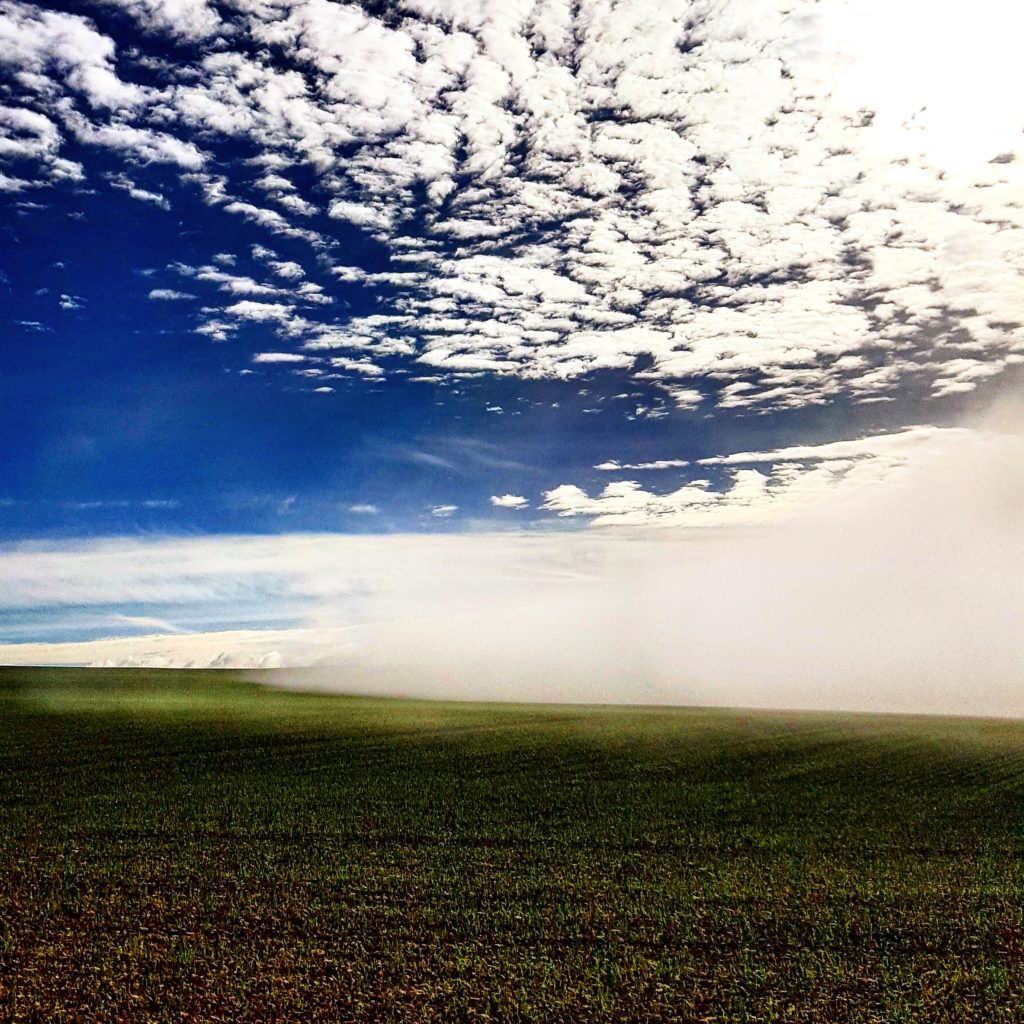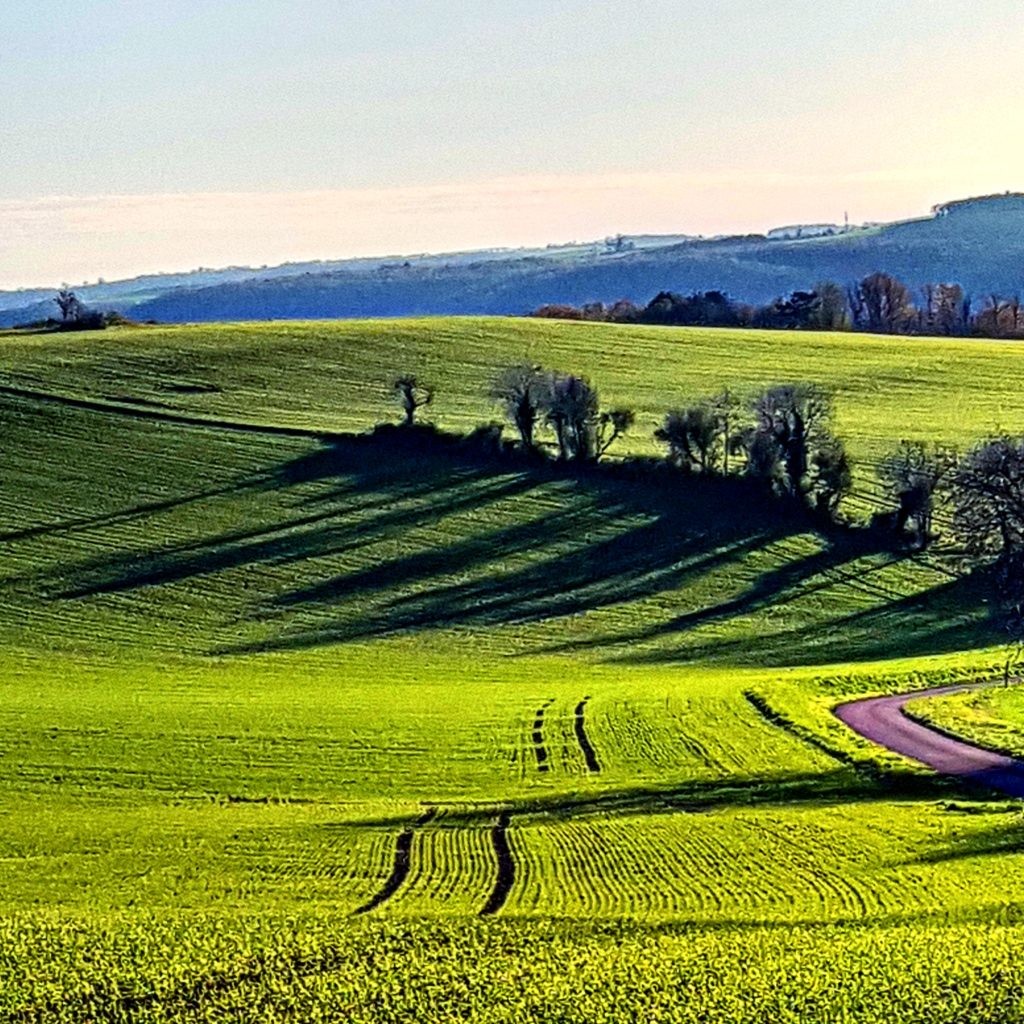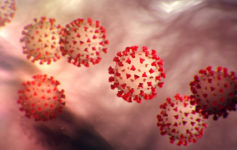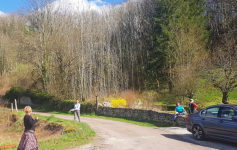
The other day, I burned a grilled cheese sandwich that I was making for my lunch. It’s my go-to noon meal in France, and over the years that we’ve been here, I’ve been perfecting it, probably because in France it’s natural to want to make a good impression on your food. For the current incarnation of James’ Grilled Cheese Sandwich, I use mayonnaise instead of butter on the outside of the bread (Thank you, Amy Schumer’s chef-husband Chris Fischer). I put a little bit of Dijon on the inside. I use two different kinds of cheese. I put a thin piece of prosciutto-grade salami on top of the cheese. And I cook it slowly on top of the stove until it all melts together.
Anyway. I got distracted, and managed to burn side 1 to a charcoal black crisp, rendering the sandwich inedible. On a normal day in a normal non-pandemic world, this would have had very little effect on my state of mind. I would have probably muttered a curse word, admonished myself for my stupidity, and gotten to work making another sandwich.
What I did instead was violently beat the nylon and plastic spatula I was holding against the counter repeatedly until it was shattered into a bunch of chips and slivers, while berating myself and barking obscenities. Fortunately, me losing my shit is a rare enough occurrence that it always takes both of us by surprise. Paula watched cautiously from the other side of the room, not saying a word, until the storm had passed.
It passed pretty quickly. After I had flung the sandwich in the trash and the pan in the sink, the rage seemed to be all gone, to be replaced immediately by remorse, and a little bit of shame. I apologized and hugged my wife, to let her know I hadn’t gone insane. I cleaned up after myself. And then I got on French Amazon and ordered three new spatulas. Call it Atonement Shopping.
For reasons that aren’t clear, I also ordered a new toaster and a new electric kettle. But I digress.
On reflection, I don’t need a psychology degree to figure out what had happened. The spatula just happened to be the recipient of nine months’ worth of frustrations and disappointments. Nine months of not traveling. Nine months of not seeing family. Nine months of not being able to go out to dinner. Nine months of reading about disease and death. Nine months of scrubbing in like I was performing open heart surgery every goddamn week just to go to the grocery store. Nine months of avoiding not just strangers, but good friends, for whom we care deeply. And, at that moment, no way to know where the end of it would be.
Most days, we have gratitude. Every once in a great while, rage wins out. And the truth is, everyone has paid an emotional price during this global event. Even if we are lucky enough to be among those who haven’t lost a loved one or friend to the pandemic, even if nobody close to us has been hospitalized, even if we see in our own living situations the advantages and blessings that others don’t have – all of us have paid a price during the past nine months. And we carry it with us.
A couple of days after the spatula murder, on a day Paula was feeling a little under the weather, which was just about perfect for late autumn – clear blue skies, golden light, just the right amount of chill in the air — I went on a rare solo walk. Rare, because Paula and I almost never do things by ourselves. Our view is that it took us a very long time to find our way to each other, and we really aren’t in the mood to spend a lot of time on our “separate interests.” Life is short. The clock is ticking.
Paula does have a writing group and a book group – women only — that she loves, and she gladly attends both without me. But I usually drive her there and go off and do my own thing, then pick her up, because we really, really like to spend time with each other. People keep saying it’s because we’re newlyweds. But we’ve been together now for seven years, married for more than five, friends for nearly 30. And we just spent nine months forced to share endless close quarters time with only ourselves.
And we still like each other. A lot. I don’t think that’s going to change.
Anyway, people in the village, and in our larger lives, find this either charming or naïve or a little nauseating. We imagine conversations about how it’s not healthy, not good for a marriage, etc., and sometimes one of them will let some such remark slip out. (Well that would mean you’d have to be apart!) But, no matter. We are unoffended. Our fondness for each other has served us really well in the life we have decided to live together. And to be frank, it has helped us get through the pandemic (so far) with our sense of humor and our ability to laugh with and (gently) at each other still intact.
One of the things we do together a lot is we walk. All of which is to say, if I go on a walk by myself, people in the village notice. Usually, they’ll just comment on it. But inevitably, someone will jump to the (quite astute) conclusion that Paula isn’t feeling well, and will ask after her.
So on my solo walk the other day, I first ran into André and Antoinette. They commented on my solo status, and hoped that Paula was OK. I said she was. Next was Jenny, the matriarch of her family and an indefatigable woman who is north of 90, still lives alone and still takes a walk outside the village gates every day. Jenny just flat out asked me, Paula est malade? I mumbled something about a minor stomach malady (true), and kept walking out of town. Whenever anyone isn’t where they’re supposed to be, I suppose people are thinking “COVID.”
It’s not without reason. So far, there have been somewhere around 10 cases of COVID in this tiny village, and at least one hospitalization. At the moment, everyone seems to be healthy again. But it’s fair to say that people are vigilant.
My destination was a route that leads straight out of the village’s main gate and out onto the plateau. It’s on the road to a town called Vitteaux, which we always say out loud in the husky accent of Marlon Brando in The Godfather. As some of you know from a previous post, we name every walk that we take around Flavigny, and our name for this one is simply, The Vitteaux Walk.
Flavigny is a hilltop village, but the hill doesn’t go all the way around. It’s better to think of it as built on a promontory, almost like it was planted on the bow of a ship some 1,300 years ago, surrounded on three sides by steep ramparts. But if you walk straight out from the fourth side, you emerge onto a broad, high plateau, from which you can see spectacular vistas of the rolling Bourgogne hills. The Vitteaux Walk heads right down the center of the plateau, on a smooth, paved road scarcely wider than a single car. For a couple of miles, it climbs gently to the apex of the plateau, then begins to descend, first gently, then steeply into the valley below. And when the fields on each side are green and cultivated, the swale and sweep of the slopes are quite dramatic and beautiful.

The other great thing about the Vitteaux Walk in cold weather is that it heads due south, and because of an abundance of fields instead of forests, it is all sun, all the time. And when you live this far north, you want to soak up as much of the low-angled sun resting above the south horizon as you can get before winter sets in hard.
The American actor Michael J. Fox has a rather profound line in his new book, when he says: “Gratitude is what makes optimism sustainable.” I think he’s right, and he’s had a lot more to be pessimistic about in his life than I have. We have such gratitude for our lives that sometimes it overwhelms us.
So that’s what we try to focus on when we walk: gratitude. But on this particular day, I was down. As usual, I tried to remember how lucky we are, and to be grateful to be walking this beautiful countryside, still with our health. But like I said, we all carry the pandemic with us, and sometimes it’s heavy.
We read the dispatches every day from America, a wildfire of disease and death that is burning out of control, with only the medical workers left to try to put out the flames. France’s economy, like most of the world, is shot, as it has gone through its second serious lockdown in eight months, and once again succeeded in flattening the curve while steamrolling workers and small businesses.
And it’s too cold now to socialize outdoors. So we prepare for a winter of even more isolation, and not spending time with good friends. Even in the sunshine, it was a weight.
Yet the earth seemed determined to lend a hand in lightening my mood. As I approached a small stand of three trees by the roadside, on the highest point of the plateau, a large kite, a split-tailed hawk, leapt from the leafless branches. I stopped and watched as he glided effortlessly west, following the slope of the field to my right until he dove below the ridge line and disappeared. He was gone in 15 seconds.
Another kilometer down the road, a large blue heron passed straight overhead, his long legs trailing behind him, likely bound for the Bourgogne Canal that cuts through the valley below, and whose banks are a habitat for heron.
Then looking into the sun, across the valley, I could see at least eight more hawks, high above the plateau, circling gracefully on the thermals rising around the steep hills. The fields were all lush and green, despite the season. The winter grasses are planted now, and starting to fill in. Even the fallow fields are green after the drenching rains of October. It’s the time of year when Bourgogne looks most like Ireland.
I stood in the middle of the empty road and watched the hawks’ lazy circles. There was almost no wind, and the sun warmed my face, even as my exhales formed clouds of condensation. It was so quiet, in fact, that the only sound was my own breathing. No matter where I chose to look, there was beauty.
I was starting to hear the message that nature was all but shouting at me: “Look at how beautiful the world is! Straighten up.”
I made a promise to myself, and maybe the universe, to try harder – even though it was too late for the poor spatula. I put the sun at my back and turned for home. The words of Michael Fox rang in my head: Gratitude makes optimism sustainable. I realized that his words are really a call to action: Optimism doesn’t just happen. You have to work at it. Remind yourself. Call yourself on your down days, push back rage with more gratitude. And keep at it. It’s the only way we’re going to emerge from this tunnel in one piece, and maybe – just maybe – we can start to make a better world.
And in that moment, my phone buzzed a news alert. Usually, when I’m walking, I turn off the notifications. Even when I don’t, I’m inclined to ignore the phone, and try to focus on the beauty in the world.
But for some reason, this time I didn’t ignore it. I opened my phone screen and looked at the headline: “Pfizer says its new vaccine is safe, 95% effective.” Ninety-five percent. A miracle.
Up on the plateau, alone save for the birds circling overhead, I started to cry.
I cried for all of those who now would never get sick and die from COVID-19. I cried for the tens of thousands who would die before the vaccine could reach them, and the hundreds of thousands already dead. I cried for how many have died alone during this damnable, cruel pandemic.
But I also cried tears of joy at the prospect, now suddenly transformed from theoretical to quite real, that sometime in 2021 we will return to hugging the people we love, traveling around the world, hosting visitors, breaking bread with good friends at last. Paula can finally see her family. And I can finally see my sons.
I cried thinking about the future, and pictured the two of us sitting in a doctor’s office in the spring or early summer, getting vaccinated against this microscopic thing that broke the heart of the whole world. I felt the weight lifting. I let the cool air dry my tears as I texted news of the vaccine to Paula, and quickened my stride for home. I missed my wife. (Sorry. It’s just the way we are.)
Finally, my heart overflowed with thanks and gratitude. And from that gratitude flowed a feeling that was a little bit unfamiliar: optimism. If we can hang in a little bit longer, this thing is going to end.
Everyone, wherever you are, and whatever burdens you carry, Paula and I wish you peace and safety on this extraordinary American Thanksgiving.




Wow a group of hawks in one place circling amongst the thermals, you sure those weren’t turkey buzzards/vultures (just kidding I know you know the difference)? Hawks and most birds of prey are typically territorial and rarely congregate. If you saw that many together that is a very rare and cool sighting. Well done…